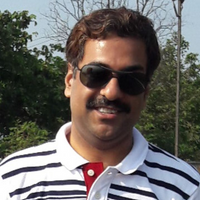The Tale Of The Unextinguished Moon
The Tale Of The Unextinguished Moon


A.Charumati Ramdas
In May 1926, journal Novyi Mir published the ‘Tale of the Unextinguished Moon’, written by Boris Pilnyak. Publication of the ‘Tale’ resulted in the confiscation of that particular number of the journal and ultimately the author had to admit that it was a great mistake on his part to write this work.
In the introductory remark to the ‘Tale…’ which was dedicated to Voronsky, a well known literary figure of the twenties of last century, Pilnyak wrote:
“The subject matter of this story may force one to think that it was based on the incidents leading to Comrade Frunze’s death. I was not personally acquainted with him. I had seen him only twice. I do not know the real facts behind his sad demise – and they are of no significance to me, because my aim is not to report on the death of the commissar of armed forces. – I think I should make all this clear to the readers so that there is no attempt to look for the real facts and real faces in the story.”
Literary critics of the ’20s thought that B.Pilnyak did not properly understand many things that were happening around and committed many mistakes of political and aesthetic nature. He quotes ‘The Tale of the Unextinguished Moon’ and ‘Mahogany’. They felt that the ‘Tale…’ depicted the Soviet life in subjective and in a wrong way.
After a gap of 61 years the ‘Tale…’, a short account of Commander Gavrilov’s death on the operation table was published in the Soviet literary journal ‘Znamya’. It seems that Commander Gavrilov had ‘felt’ and ‘foreseen’ his death. He did not want to die in this way, but could not prevent it.
Soviet writer Fyodor Gladkov in his letter to M.Gorky wrote on 5th May 1926: “You have probably heard about the latest literary event – about the confiscation of 5th issue of Novyi Mir, in which Pilnyak’s ‘Tale of the Unextinguished Moon’ is published. The story is about the death of Comrade Frunze. But one is forced to see in it the shadow of powerful persons, leaders of the Great Revolution, who are capable of victimizing (liquidating) anyone. I feel that the author is completely ignorant of what he writes and he is making full use of rumours which are knit around this accident.” Fyodor Gladkov felt that Pilnyak did not know his epoch, his contemporary people, and problems of his epoch and did not feel the mighty breath of the future.
M.Gorky in his answer writes, “Yes, PIlnyak is propagating the idea that the Central Committee (of CP) ordered Frunze to undergo surgery – Frunze had an ulcer and obviously no one can issue orders in that respect. It’s all farce!”
These bits of evidence forces one to think what the ‘Tale…’ was about? What did B.Pilnyak try to expose? In four chapters B.Pilnyak has highlighted the incidents responsible for the death of his hero – Commander Gavrilov.
In the beginning, the author describes the arrival of Gavrilov from the Caucasus to Moscow – and in the very beginning, the newspaper vendor shouts – “Revolution in China! The Commander arrives! Commander Gavrilov’s sickness!” and then PIlnyak describes the protagonist in this way: “It was the man whose name spoke about the heroism of Civil War; about thousands, millions, milliards of people standing behind him; about thousands, millions, milliards of deaths; sufferings, amputations, hunger and cold; about the deafening noise of firearms, bullets, night winds; about campfires; about marches; about victories, about retreats; and again about death. It was the man who had the right of sending people to the battlefield to kill and to get killed!”
Pilnyak obviously tried to show contrast. Yes, a powerful man like Gavrilov, who controlled the death of millions of people, was helpless when the death was knocking at his door. He felt the oncoming footsteps of death but was unable either to prevent or to postpone it.
When his close friend Popov asked him about his health, he answered in a depressed tone, “Yes, I am fine, but I feel that you will have to stand by my grave!”
Gavrilov was not joking. He was quite serious when he said, “You know I had and probably still have the ulcer. I was sent to the Caucasus. I was cured…I even tried a bottle of wine…no pains…So my health is perfectly alright. But do you know why I was called back to Moscow? I got an order to come to Moscow right from the Caucasus. I could not even see my wife. I can’t guess what the reason could be…Everything is OK with the armed forces,…no congresses, nothing – yes brother, CC (Central Committee) plays with the man!”
Then suddenly in a low voice, he confided to Popov, “In Rostov, I met Potap (one of the three big bosses – i.e. of the TROIKA-which ruled the country). He convinced me to get operated upon for ulcer – to cut off and throw it – convinced me forcefully but in a suspicious way! You know, my whole organism resists this operation. I am a healthy person. I have seen much blood, but I am afraid of the operation. I don’t want it. They will kill me!”
And casually the Commander turned the pages of the newspaper. The paper informed that Commander Gavrilov had temporarily left the army so that he can undergo an operation for ulcer. The Commander’s health was causing concern, but the doctors assured of a successful operation.
So the stage was set for the tragic act, the newspaper report acted as a catalyst for it. And Gavrilov also seemed to have suspected something. He said, “See Alyoshka, this is not simple, there is something deep in it – this operation is going to be deadly. But what can I do?!”
Yes, Gavrilov was helpless. Soon he was called to the House No1, where a straight, unbending person was sitting and writing something. This was one of the above mentioned TROIKA – the first one who ruled the destinies of many. There prevailed a dreary silence in the house. Everything was noiseless; everything was straight just like the person, who was also straight and silent in all his actions – in all hid deeds. Gavrilov could not see his face – it was in the shadow of the lamp, he could only hear his voice. This description gives a hint that the crimes originate from an unseen place, an unseen person.
On Gavrilov’s question as to why was he called back to Moscow, he said, “I called you back because you need a surgery. I have consulted the professors (specialists, doctors), they say you will be alright in a month’s time. You are a person, who is needed by the country. The professors are waiting for you; they will examine you and remove your ulcer. I have issued orders!”
When Gavrilov said that his doctors did not advice any surgery, the straight person said, “Do you remember, once you decided to send 4000 people to die? You were right! I did not object to it – Excuse me I have given orders!”
Does the author want to tell that the straight person was sending Commander to a place where death was certain?
Commander Gavrilov was medically examined by a committee of doctors, he was given chloroform and in the process, he died.
Pilnyak says that there are some organisms, which do not respond to any type of anaesthesia, some organisms are poisoned by chloroform. That is what happened with Gavrilov. His will power was so strong that he refused to react to chloroform. When he did not lose consciousness after 2-3 minutes, the anaesthetist continued the dose for 48 minutes and the Commander permanently went to sleep. But even then he was put on artificial respiration, operated upon; and it was discovered that the ulcer that was there inside the stomach, had completely healed up. Only a small mark telling about its existence was left there. The stomach was stitched back; he was brought to the intensive care unit and put on camphor etc. Commander Gavrilov’s death was announced only after 37 hours.
In the meantime young Professor Lozovsky, who was the chairman of the advisory committee constituted for the medical treatment of Gavrilov got secret orders from House No1, inquiries were made on secret telephone line regarding the operation and Lozovsky, bowing to the telephone receiver, informed the ‘straight person’ that the condition of the patient did not allow him to move away from Gavrilov. After the official announcement about the Commander’s death, Professor Lozonsky went to House No1 in a closed car which was sent for him from House No1, stayed there for three minutes and came out. Earlier Professor Lozonsky was picked up from his house in a car before he went to the hospital for the operation. But after he reported the result of the operation to the ‘straight person’, the car which had brought him there, had disappeared. He had to go back home on his foot. It implies that when the allotted work was over he became an insignificant man.
Pilnyak informs us that the commission, which was formed for the medical check-up of Commander Gavrilov was to be headed by the senior-most surgeon of the country – Professor Kokosov. But actually, it was Lozovsky, who conducted the proceedings. Surgery was performed by Lozovsky and Kokosov was asked to assist him. Why? Kokosov, as seen from the ‘Tale…’ was a person, who respected and loved his profession. He would not have allowed the patient to die on the operation table, which is against all ethics of the medical profession. Kokosov refused to use the car, which was sent to pick him up for the operation, while Lozovsky readily used all the privileges offered to him for that purpose. That is why secret orders were sent to Lozovsky and not to Kokosov
It is quite possible that after going through the information sent to the Professor about Gavrilov’s health, Lozovsky could have thought of the deadly reaction of chloroform on his organism. That made his job easy. That was why in spite of the anaesthetist’s anxiety about Gavrilov’s inertia towards chloroform he ordered a continuous supply of the same for 48 minutes! Thus he fulfilled his job there only – or else Kokosov would not have allowed the murder of the patient on the operation table, under the knife of a doctor.
So Gavrilov died, as he had foreseen it. His death was deeply mourned by House No1 and the TROIKA which was ruling the country. But this ‘Tale…’ of B.Pilnyak is not only about the death or political murder of the Commander of armed forces. The author tries to highlight various other issues.
The very first point is about Commander Gavrilov. A powerful man, who enjoyed the capacity and power to send his countrymen to the battlefield for a certain death could not utter a single word, when the ‘straight person’ told him, “There is nothing to talk about this. I have already issued orders”. Gavrilov knew that he had fully recovered from the ulcer. He suspected a deadly result of the proposed operation. He knew that the operation was a mere ‘formula’ which was worked upon to get rid of him. But he did not try to stop the operation. He did not revolt, he did not escape from the scene; instead, submitted to the orders of the ‘straight person’. Maybe it was his habit – the habit of a soldier to obey his commander. That was why when the ‘straight person’ said – “you had ordered 4000 persons to be sent to the battlefield for a sure death, I did not object. You have to undergo this surgery” and Gavrilov obeyed the command.
This ‘Tale…’ is also the tale about the ‘straight person’; about his silent ways of ruling the country; about his ‘formulae’ to eliminate the unwanted people from his way.
Pilnyak was probably the first, who dared to present the scene of Commander’s death, which looked similar to a political murder. He was probably right. Maybe it was a political murder. But this ‘Tale…’ could not prevent many more political murders or the purges which shook the country in the thirties.
This is also a tale about people like Lozovsky, who were used as instruments for such crimes. Lozovsky became a party to this murder. Probably, out of fear for his own life, or out of a determination to please the authorities.
Gavrilov died, but through the narrative about his death, Pilnyak has bravely hinted at the repetition of such ‘accidents’ in future and has thus fulfilled the duties of a writer towards the society.
































































